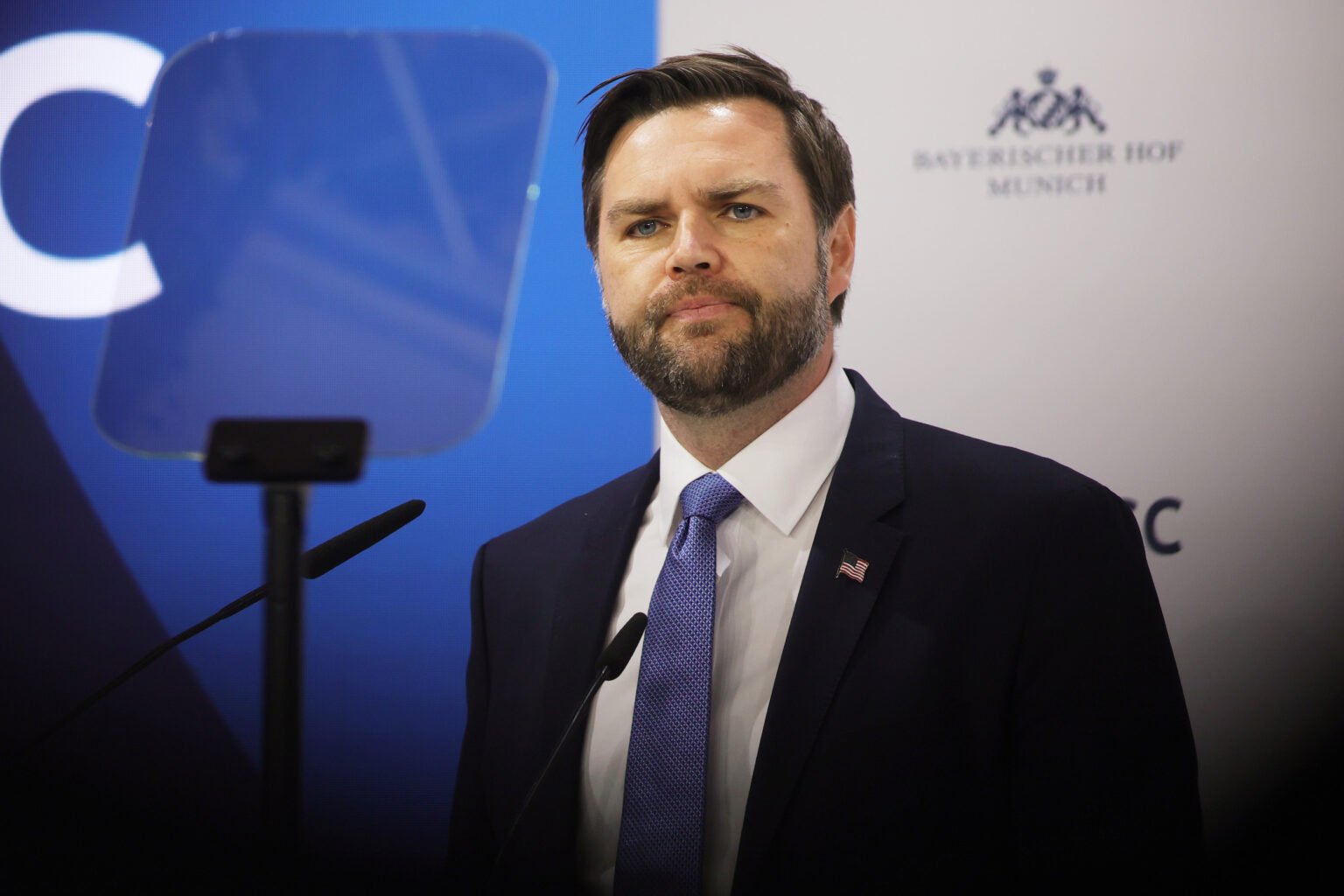In recent days, President Donald Trump and Vice President JD Vance have created controversy across Europe, from Munich to Kyiv. But this disruption flows from logical and strategic imperatives.
America has provided a blanket of protection over Europe for over 80 years, at enormous expense to hard-working U.S. taxpayers. Now, the United States faces two concurrent and related challenges. First, we struggle to manage a mountain of debt, with Bidenomics having exploded the federal government’s total liabilities to over $36 trillion, making interest expenses the single largest line item of the entire federal budget. Second, unlike the Cold War, the most existential threat to America lies not across the Atlantic, but across the Pacific, in Beijing.
Accordingly, President Trump wisely insists on an America-first foreign policy of realism and restraint, demanding that wealthy Western European nations shoulder their own security burdens. He also rightly demands that those nations provide for the defense of Ukraine, and that the senseless war there come to a quick conclusion.
JD Vance, for his part, minced no words in relaying a serious admonition to the bureaucrats of Europe in his Munich Security Conference address earlier this month. Vice President Vance informed the assembled politicians and diplomats that if Europe insists on its current path of repressing free speech and inviting mass immigration, an alliance with America based on “shared values” cannot persevere. This divergence might shock European elites, but is hardly surprising given the rise of populist nationalism across the world, including in many European countries.
Turning back to Ukraine, Trump was elected on the promise to undo nearly every mistake of the Biden years, including blank-check support for Volodymyr Zelensky’s war effort. In a series of statements and social media posts, Trump and his team have bluntly criticized Zelensky for his maximalist approach to the war and repressive tactics inside Ukraine.
These valid criticisms spur important conversations within America. After all, at a time of economic stress, with Americans struggling just to afford groceries after four years of Biden’s inflationary crisis, should this country really borrow hundreds of billions of dollars to fund a stalemate war 6,000 miles away, encouraged by a corrupt regime in Kyiv using that very war to cling to power?
For example, Zelensky just unilaterally sanctioned former Ukrainian president and opposition politician Petro Poroshenko, freezing his financial assets. Zelensky ordered this punishing act of political repression without due process or court proceedings. Such extrajudicial restrictions are indeed the tactics of a dictator, the term President Trump used to describe the Ukrainian president.
Even worse, in an interview with CNN’s Christiane Amanpour, Zelensky brazenly told Ukrainians who are skeptical of him to simply leave the country. He stated: “If someone doesn’t like [the way things are], they can choose another citizenship.”
Not exactly Thomas Jefferson.
No wonder President Trump and others have grown tired of Zelensky. They demand that he get serious, help achieve a ceasefire, and hold long-overdue elections.
Consider the observations of Secretary of State Marco Rubio. As a senator, Rubio had been quite supportive of U.S. aid to Zelensky. But during these current talks to end the war, Rubio issued a harsh rebuke: “When you see [Zelensky] accusing [President Trump] of disinformation, that’s highly counterproductive. President Trump isn’t going to take that. He’s not going to get gamed. He hopes Zelensky isn’t trying to hustle the United States.”
Warning a foreign president not to “hustle” America is not exactly standard diplomatic procedure from a secretary of state. But Rubio’s remark reflects a growing impatience with Zelensky, and the urgency of a clean election in Ukraine. Regarding that plebiscite, the newest polling out of Ukraine, conducted by Socis and Gradus Research, shows that Zelensky would only earn 16 percent of the vote nationwide, and lose handily to General Valerii Zaluzhnyi, the current Ukrainian ambassador to the United Kingdom.
Whatever the outcome of that election would be, the point is that the decision must be made by the citizens of Ukraine, not Western “experts” or defense contractors. After years or brutal fighting and a regime in Kyiv that for many years has been widely regarded as systemically corrupt, a better future lies ahead for Ukraine and for America.
After a negotiated settlement, Ukraine can begin to rebuild, with the preponderance of the outside assistance emanating from Europe, not the United States. Then, America can direct its focus and resources to more pressing threats in the Pacific and domestic challenges at home.
Steve Cortes was former senior advisor to President Trump and JD Vance, former commentator for Fox News and CNN, and president of the League of American Workers, a populist right pro-laborer advocacy group.
The views expressed in this article are the writer’s own.
Read the full article here

